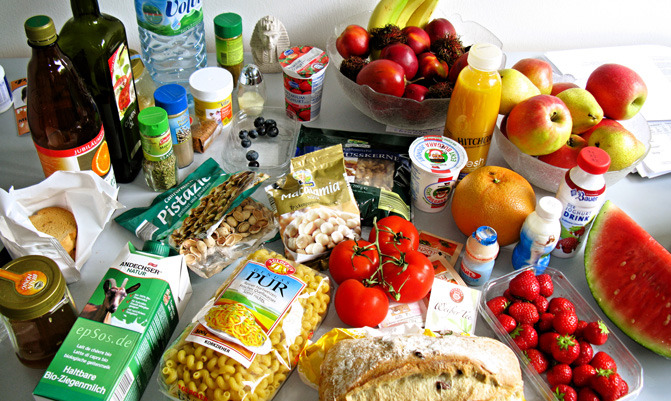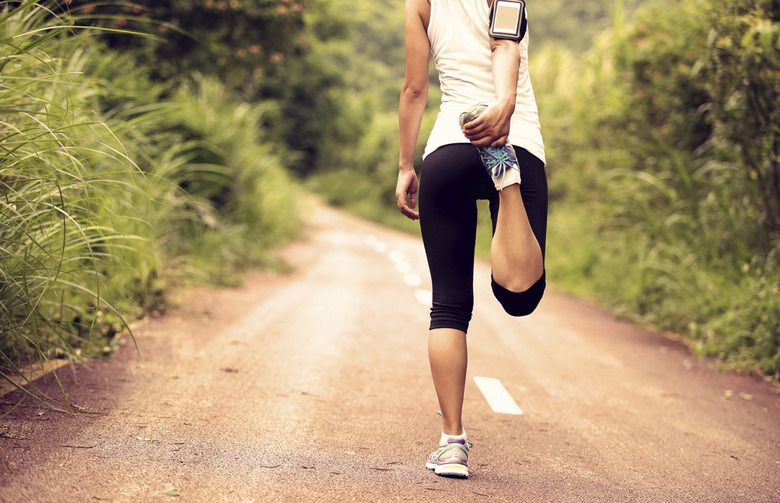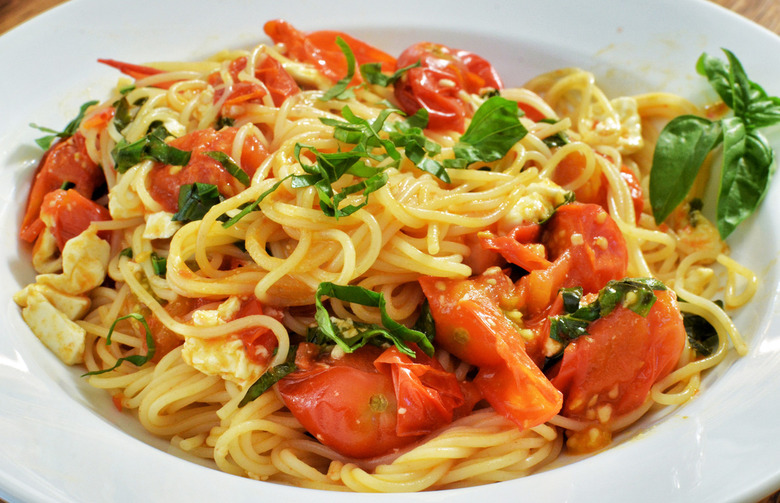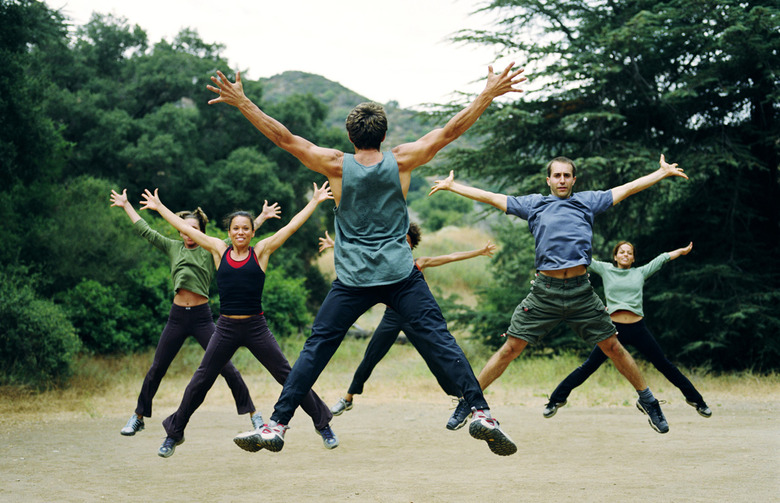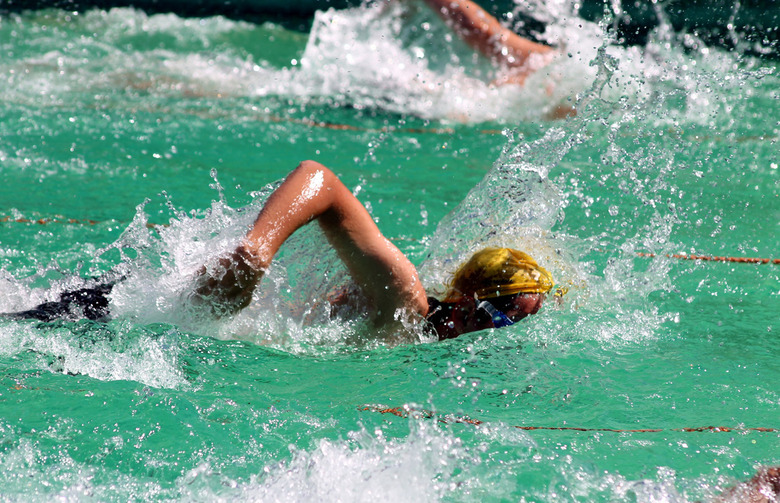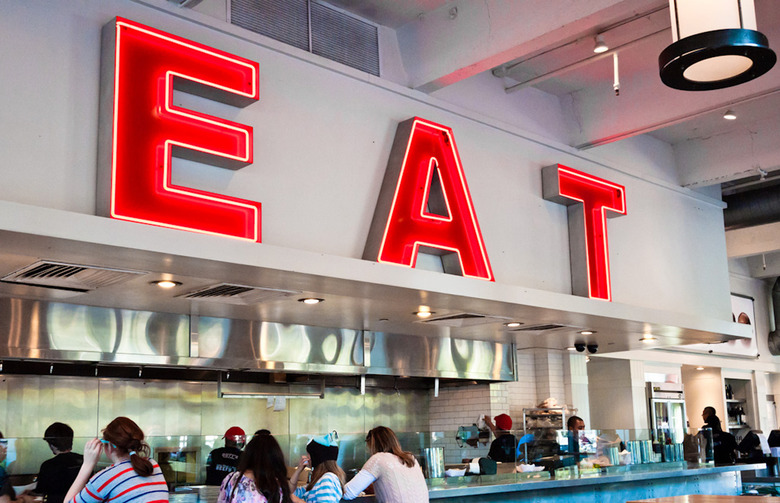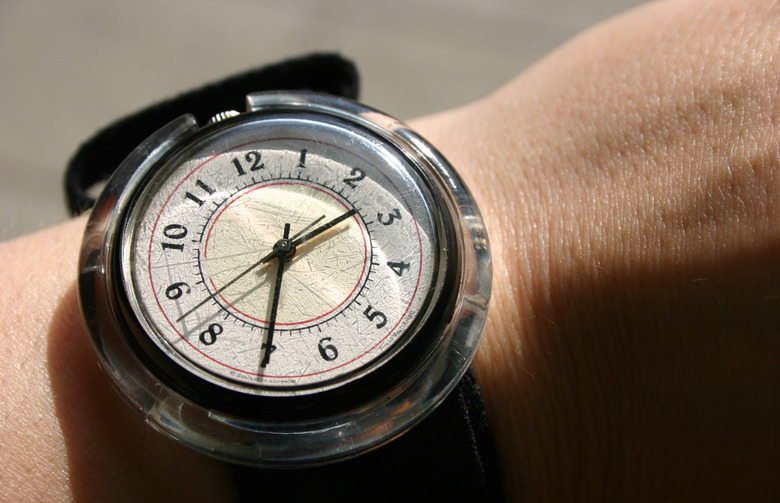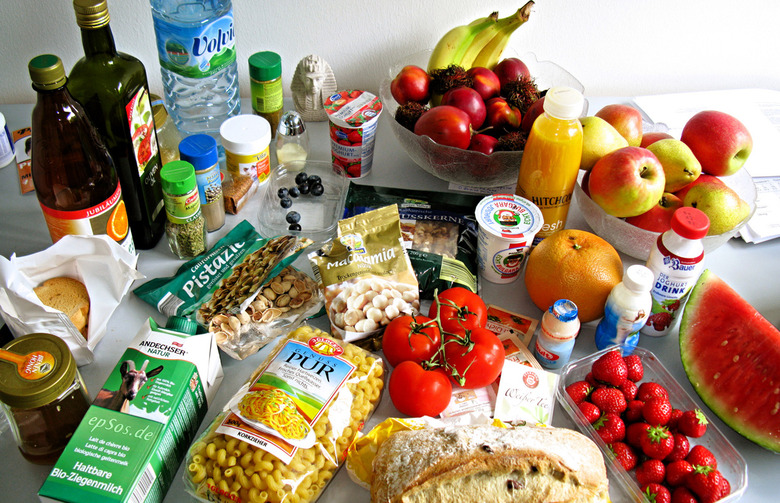9 Beliefs About Eating Before Exercising: True Or False?
Figuring out whether to eat, when to eat, and what to eat before exercising can be a daunting challenge for even a seasoned gym rat. There are plenty of notions that have been drilled into our heads ever since we were told to wait an hour after eating before swimming — but are they true or false?
1. If You Exercise First Thing in the Morning, Don’t Eat Anything Beforehand
False. Your body craves fuel first thing in the morning, and if you head right to the gym without putting anything in it, you'll find yourself fatiguing fast. Eat a little something — like a granola or protein bar — before your workout, and make sure to wash it down with lots of water.
2. Eat a Big, Carbohydrate-Rich Meal Before Exercising
False. Marathon runners can get away with eating a big bowl of spaghetti before running because it'll give them sustained energy, but before a standard gym session it will just weigh you down. You should eat something that contains carbs and protein, but it doesn't need to be huge.
3. Exercising While Fasting Can Have Benefits
True. According to Greatist.com, there are certain benefits to exercising on an empty stomach; in short, exercising while fasting increases the body's growth hormone, taps into the body's energy stores more effectively, and leads to better absorption of post-workout meals. Just make sure you stay hydrated, and start off with small workouts to see how your body responds.
4. Wait an Hour After Eating Before Swimming to Avoid Cramps
False. While getting vigorous exercise immediately after eating a huge meal can result in sluggishness and discomfort, getting a few laps in after eating won't do any harm.
5. If You Exercise While Fasting, Make Sure You Eat as Soon as You’re Finished
False. If you've just finished exercising on an empty stomach, it doesn't make any difference whether you eat immediately or decide to wait a few hours. Your body will still absorb nutrients the same way, and there won't be any muscle loss.
6. It’s Best to Eat a Meal One to Three Hours Before Exercising
True. It's best to give yourself some time to digest before exercising, but don't wait so long that you've used up all of its potential. Waiting about an hour after eating a meal before exercising is optimal; obviously, if it's just a nutrition bar, you don't need to wait so long.
7. It’s Important to Develop a Workout Nutrition Strategy
False. According to Precision Nutrition, as long as you eat an hour or two before exercising and an hour or two after exercising (and your workout is a normal gym session), you don't need to worry about a specific workout nutrition strategy. Just stick to a healthy portion size, make sure it contains carbohydrates and protein, and drink plenty of water.
8. Eating a Fattening Pre-Workout Meal Will Diminish Your Performance
True. Fat doesn't improve or fuel performance, and it can weigh you down. But make sure that your pre-workout meal contains some fat, because it slows digestion, which can help maintain blood glucose and insulin levels.
9. Staying Hydrated Should Be Your Main Priority During a Workout
True. While it's important to stay fueled with protein and carbs during long, intense training sessions, during your standard hour-long gym visit there's no reason to be choking down Clif bars. The most important thing is to stay hydrated; drink electrolyte-rich sports drinks if you're in the heat and sweating a lot, but otherwise, plenty of water (just not too much!) should do just fine.
